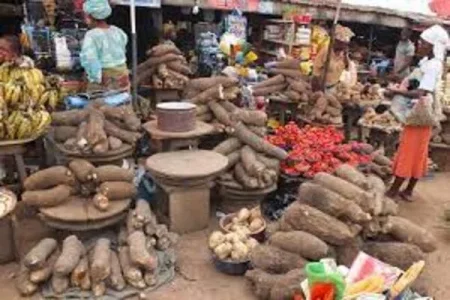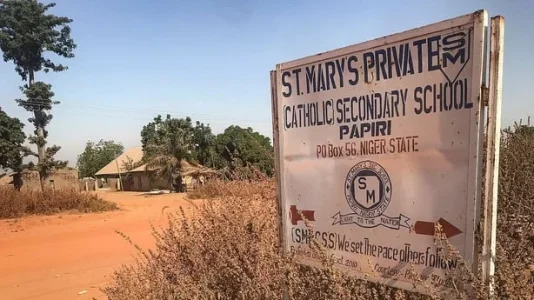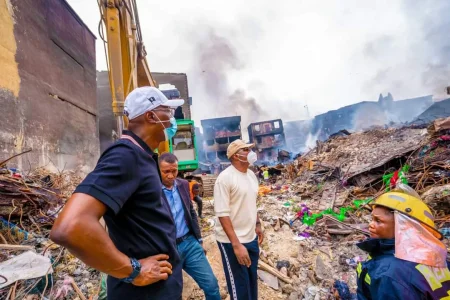
The escalating cost of living in Nigeria took a more severe toll as a truck carrying food items was attacked in the Suleja area of Niger State. Simultaneously, hundreds of residents in Dikwa town, Borno State, voiced their desperation over hunger, with some threatening to join terrorist groups in the state.
The nationwide hardship, triggering protests across the country, has manifested in various forms. Earlier this month, women in Minna, Niger State, blocked roads to protest the rising cost of food items, making access to three square meals per day increasingly unattainable for millions.
In the recent incident in Suleja, soldiers had to intervene as youths attacked trucks loaded with foodstuff destined for Kaduna. Witness accounts reveal that the attackers, burning tires on the road, made away with bags of rice and cartons of spaghetti before soldiers dispersed them.
In a disturbing development, residents of Dikwa town in Borno State took to the streets, highlighting their inability to feed their families due to skyrocketing commodity prices. Severe shortages of foodstuff compounded by the collapse of livelihoods since the Boko Haram crisis have left the community grappling with unprecedented challenges.Videos obtained from the protests in Dikwa depict the anguish of women and children, lamenting, "Hunger and thirst are killing us." Some residents even expressed the fear that the dire situation might lead to collaboration with insurgent groups.
Meanwhile, protests against hunger, social, and economic difficulties faced opposition in Jigawa State, where police blocked demonstrators from marching on the streets, citing the lack of a permit and concerns over potential disruptions.
The gravity of the situation prompted the National Economic Council (NEC) to take action, outlining initiatives to address the economic challenges facing the nation. Vice President Kashim Shettima, chairing the meeting, emphasized the need for a clear and actionable roadmap to overcome the economic crisis. The council highlighted measures such as making fertilizers available to farmers and establishing agro-rangers to tackle insecurity in farms.
As the nation grapples with this pervasive emergency, concerns about the citizens' well-being and tangible results take center stage. The urgency of aligning decisions with the realities on the ground is emphasized, recognizing that ordinary citizen's daily concerns are anchored in the tangible impacts on their lives.
Source; Daily Trust


![[VIDEO] Igbo Language Featured in Pope Leo XIV's First Christmas Vigil Mass at Vatican](/data/attachments/226/226552-3ebd7a3d69b149c5ae853a801a4f7a47.jpg?hash=K7aWaEWiZG)

